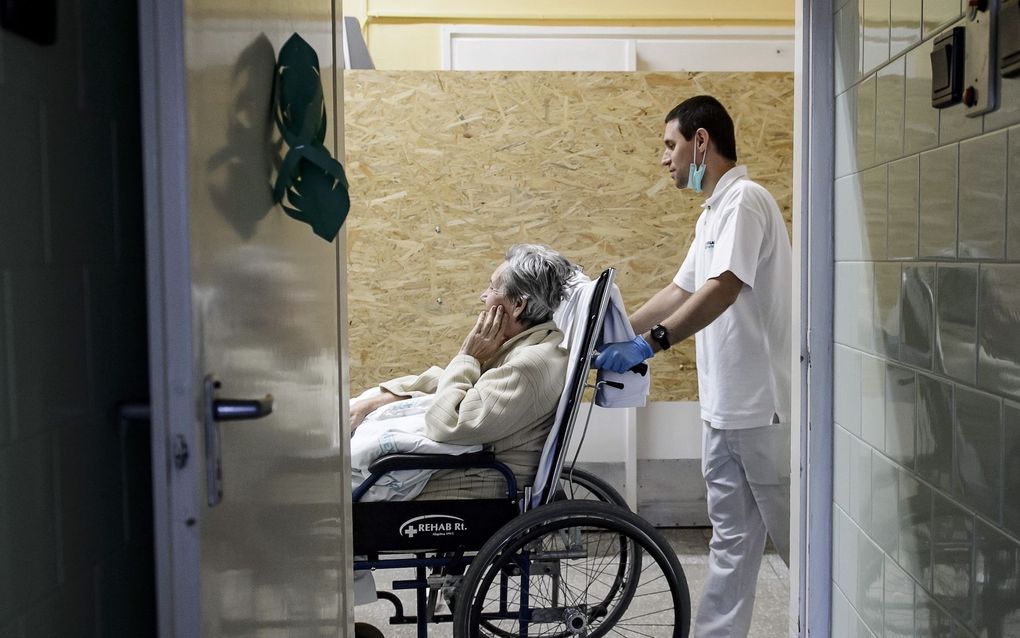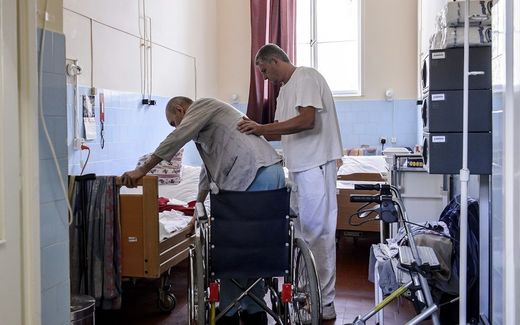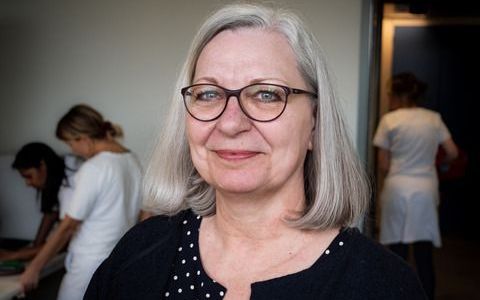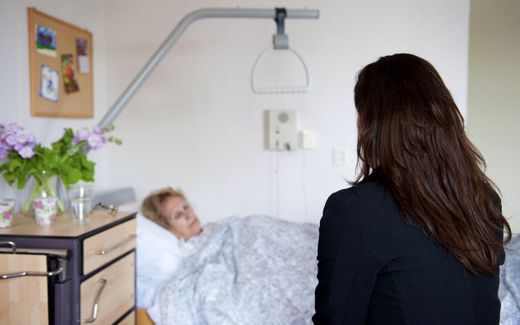Doctor Gorm Greisen fears cultural shift in Denmark if euthanasia becomes legal

A healthcare professional takes and elderly lady in a wheelchair in the Hospice Department. Photo EPA, Peter Komka
Northern Europe
Many are afraid of dying in much pain. Therefore, many people in Denmark want to legalise euthanasia. However, this may cause a cultural slide, doctor Gorm Greisen from Denmark fears.
The debate on euthanasia is in full swing in Denmark. Recently a petition that requires the Danish Parliament to look at the issue reached 51,000 votes. Yet, Greisen believes that "the concept of active euthanasia is not so good."
The senior physician and former member of the Ethics Council points out in an opinion article in Kristeligt Dagblad that there is a difference between help in dying and help to die. "It is legal for a doctor to give a patient with a short life expectancy painkillers to relieve pain, even if they carry a risk of poorer breathing and death. The doctor's intention is to relieve. But active euthanasia means that the doctor does something to make the patient die. The doctor's intention is to shorten life, to kill the patient. Words have a terrible power."
Yet, intentions are hard to measure, Greisen emphasises. "After all, they are something that is only found between people's ears. And people can even have mixed motives."
Consequences
Until now, Danish biomedical healthcare has reasoned from a consequence ethical starting point, he explains. Whether something is good or bad depends only on the consequences of that action. As a result, some Danish health philosophers have argued in favour of the legalisation of euthanasia. The result is that the patient dies, but that happens in either case, so what is the difference, they think?
Yet, Greisen disagrees, he writes in his comment. During his work as a paediatrician, he spent much time with sick children and newborns. That meant that he regularly had to decide whether to continue treatment or turn off the machines that kept a child alive. That is a balancing act, Greisen acknowledges. A child needs a family, but it is hard to "meet the needs of a small sick or disabled child. The future of an entire family is at stake."
Breathe
At the same time, he acknowledges that the decisions are made on weightings that can differ per doctor. In addition, there are "no natural limits on which foetuses can be aborted and which newborn children or other people can be given active euthanasia." And that makes it different from the work he did as a physician, Greisen argued. "After all, only those who cannot breathe on their own die when the respirator is turned off."
The danger of legalising euthanasia is that it can lead to a slippery slope because, after all, "a newborn child is helpless, and it is clear that it is pointless to talk about its wishes to die", Greisen writes. Also, old people may not be able to think clearly, he emphasises. "Then maybe it will not be an entirely autonomous choice."
Even though the reasons for legalising active euthanasia may sometimes be understandable from a human point of view, Greisen, therefore, worries that it becomes a cultural slide.
Debate
The Danish Prime Minister Mette Frederiksen, on the other hand, is in favour of legalising active euthanasia. According to Altinget, Frederiksen said so last Thursday. She believes euthanasia is a matter of dignity, "about how much humans should be allowed to decide ourselves." However, Frederiksen also added that "it should not be opinion polls or experts who decide this issue" but that a debate is necessary.
Bishop Marianne Christiansen worries about the developments around euthanasia, Dagen reports. She writes in her monthly letter of July that she wonders "where the legalisation of euthanasia will drive us as a society and as individuals – in our view of humanity, in the view of what a dignified life is and the assessment of which lives are worth saving."
Related Articles








